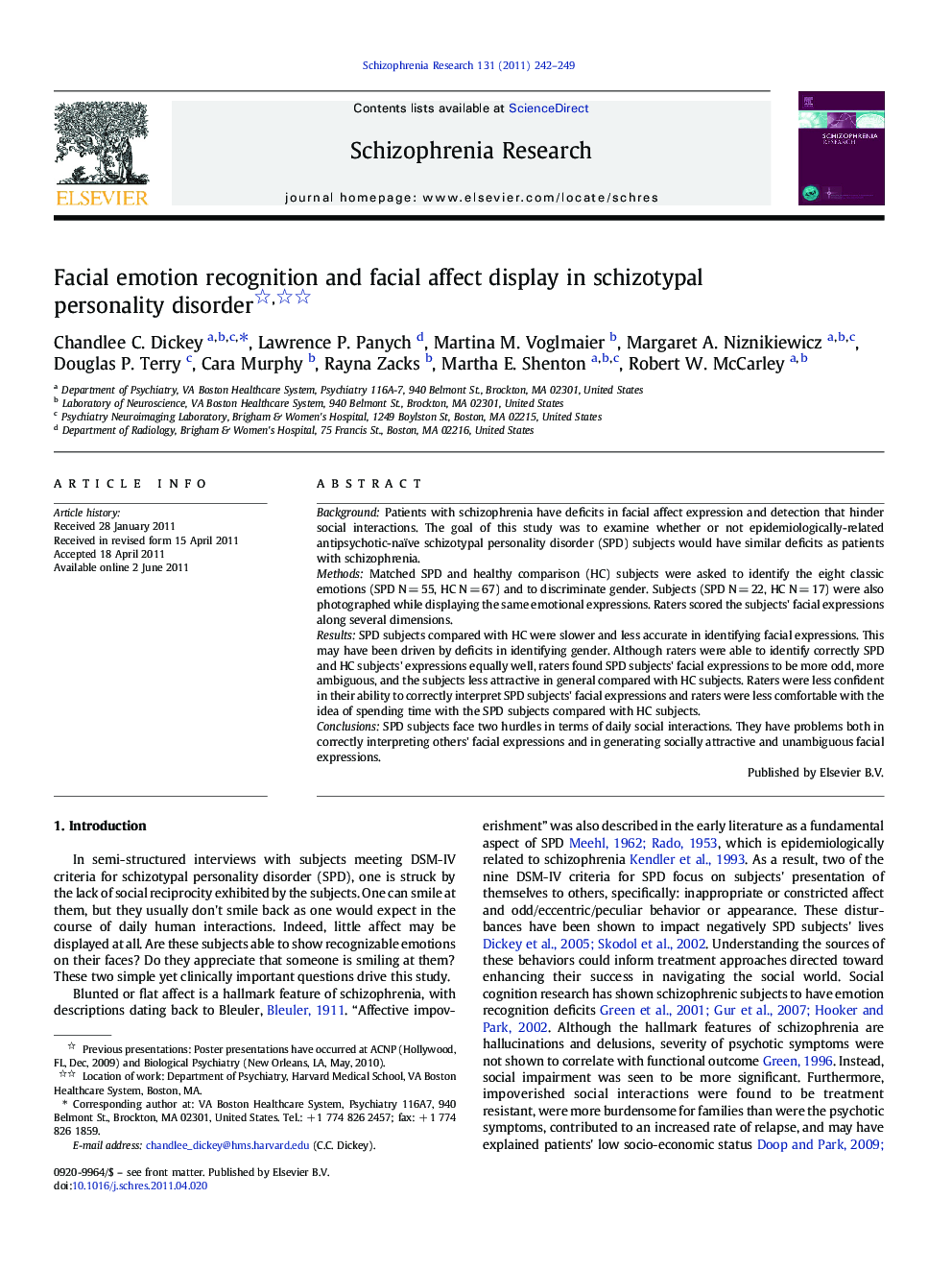| Article ID | Journal | Published Year | Pages | File Type |
|---|---|---|---|---|
| 338394 | Schizophrenia Research | 2011 | 8 Pages |
BackgroundPatients with schizophrenia have deficits in facial affect expression and detection that hinder social interactions. The goal of this study was to examine whether or not epidemiologically-related antipsychotic-naïve schizotypal personality disorder (SPD) subjects would have similar deficits as patients with schizophrenia.MethodsMatched SPD and healthy comparison (HC) subjects were asked to identify the eight classic emotions (SPD N = 55, HC N = 67) and to discriminate gender. Subjects (SPD N = 22, HC N = 17) were also photographed while displaying the same emotional expressions. Raters scored the subjects' facial expressions along several dimensions.ResultsSPD subjects compared with HC were slower and less accurate in identifying facial expressions. This may have been driven by deficits in identifying gender. Although raters were able to identify correctly SPD and HC subjects' expressions equally well, raters found SPD subjects' facial expressions to be more odd, more ambiguous, and the subjects less attractive in general compared with HC subjects. Raters were less confident in their ability to correctly interpret SPD subjects' facial expressions and raters were less comfortable with the idea of spending time with the SPD subjects compared with HC subjects.ConclusionsSPD subjects face two hurdles in terms of daily social interactions. They have problems both in correctly interpreting others' facial expressions and in generating socially attractive and unambiguous facial expressions.
